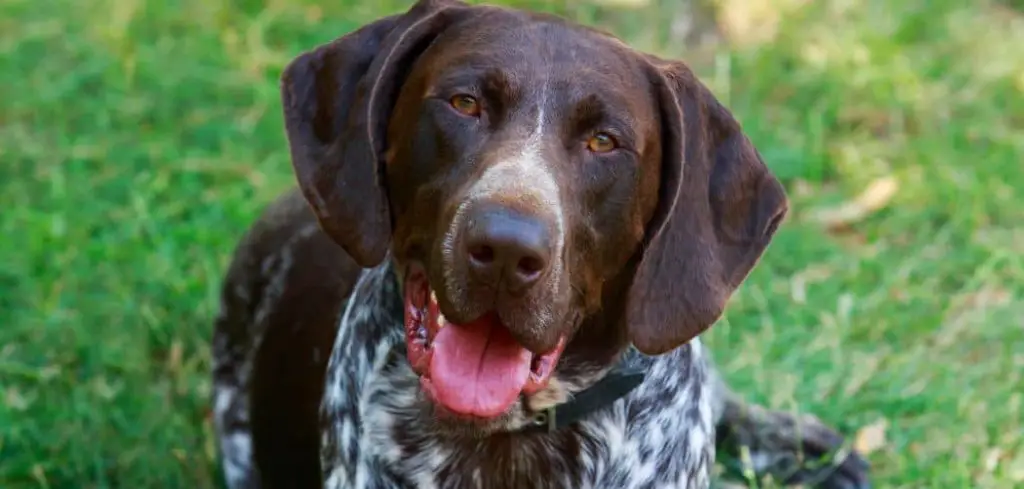If your dog is panting and yawning frequently, it may not just be fatigue or boredom—these combined symptoms can indicate anxiety, pain, or other underlying medical issues. Paying attention to the context and any accompanying signs is key to understanding what your dog might be trying to communicate.
We outline the common causes of dog panting and yawning, what you can do at home, and when to seek veterinary help.
Table of Contents
Dog Panting and Yawning — Why It Happens
Dogs pant and yawn when they’re stressed, tired, feeling unwell, or reacting to changes in their internal state or environment. These behaviors often act as a communication signal—your dog may be expressing emotional discomfort, physical pain, or nervousness.

Common Causes of Dog Panting and Yawning
Stress or Anxiety
Frequent yawning is a classic canine stress signal, often seen alongside panting when your dog feels anxious or overstimulated.
Situations like travel, loud noises, visits to the vet, or new people or pets in the home can trigger this behavior.
Other signs of stress may include pacing, trembling, lip licking, or hiding.
Chronic anxiety can also lead to behavior issues or health concerns if left unaddressed.
Supportive measures include calm environments, desensitization training, calming supplements, or veterinary-prescribed anxiety medications if needed.
Overheating or Mild Heat Stress
Panting is your dog’s natural way of cooling down, but if it’s accompanied by yawning, it may indicate fatigue or that they are starting to feel overwhelmed by heat.
Dogs may also lie down frequently, appear restless, or seek cool surfaces to lie on.
Always ensure access to water and shade, and avoid walks during the hottest parts of the day.
If your dog seems distressed or continues panting heavily, heat exhaustion could be developing—seek veterinary attention immediately.
Read more: Dog Panting and Shivering (Pain, fear—or something deeper?)
Fatigue or Drowsiness
Yawning can be a sign of tiredness, especially after a long walk, play session, or late-night excitement. Combined with panting, this might just mean your dog is winding down.
However, excessive yawning and panting outside of activity or bedtime may point to discomfort.
Watch for changes in sleep patterns, reluctance to move, or pacing at night that could suggest a medical issue behind the fatigue.
Nausea or Digestive Upset
Some dogs yawn and pant when feeling nauseous—this is a lesser-known but common symptom of GI discomfort.
It may also be accompanied by lip licking, restlessness, drooling, or attempts to eat grass.
Dietary indiscretions, stomach infections, or inflammatory conditions could be the cause.
If vomiting occurs, or the symptoms last longer than a few hours, consult your vet to rule out more serious problems.
Pain or Discomfort
Dogs may pant and yawn when they’re in pain, especially with chronic issues like arthritis, dental disease, or internal discomfort.
The yawning may be a coping mechanism or a displacement behavior that signals unease.
Look for signs such as limping, changes in posture, reluctance to be touched, or changes in appetite.
Pain should never be ignored, especially in aging dogs or those with pre-existing conditions. A vet can determine the source and offer safe pain relief options.
What to Do If Your Dog Is Panting and Yawning
Stay calm and observe when and where the behavior happens. Are there clear triggers like guests, loud noises, or new environments?
Make sure your dog is in a cool, quiet place with access to water and comfort.
Offer gentle reassurance, but avoid reinforcing nervous behavior with excessive fussing.
If you suspect nausea, withhold food for a few hours and monitor for vomiting or diarrhea before offering a bland diet.
Avoid giving any medication unless directed by a veterinarian.
When to Call or Visit Your Vet
Reach out to your vet if your dog:
Pants and yawns excessively without clear reason
Shows other signs like vomiting, diarrhea, or disorientation
Becomes lethargic or unresponsive
Appears to be in pain or has trouble moving
Has pale gums, rapid breathing, or a high heart rate
Timely veterinary care ensures early diagnosis and effective treatment.
Read more: Dog Panting and Licking Lips (What it means)
Key Takeaway
Panting and yawning together often point to more than just a sleepy pup—it could be stress, pain, nausea, or overheating.
Tune in to the context and other clues your dog is giving you, and don’t hesitate to involve your vet if something feels off.
Your dog’s body language is their voice—make sure you’re listening closely.
